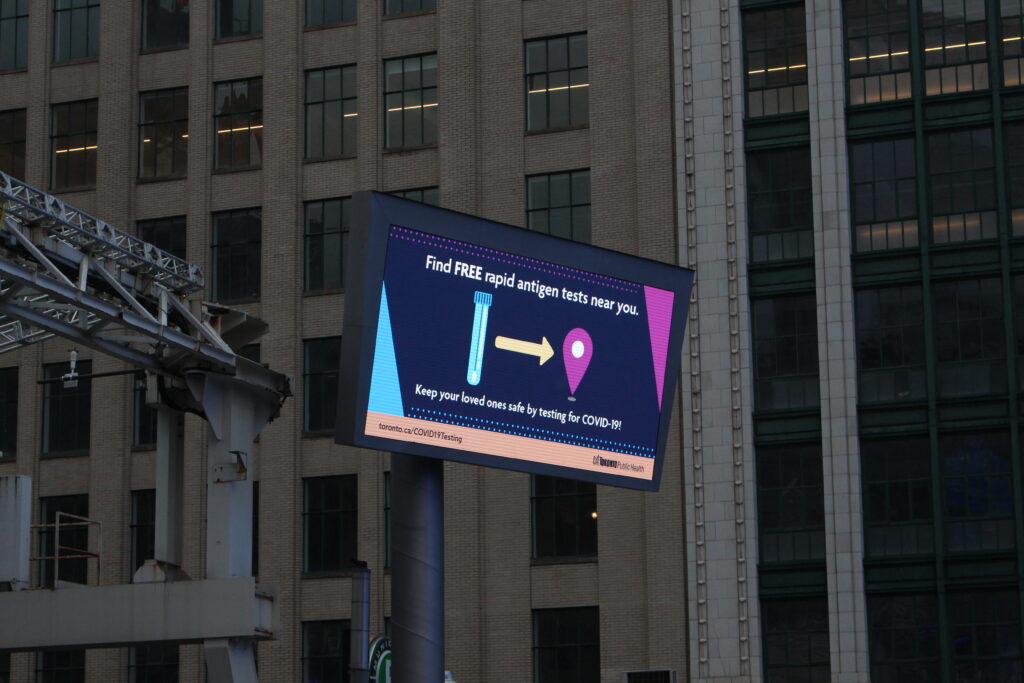
Listen to the full story:
In a recent study, rapid COVID-19 tests BTNX showed inconsistent results leading to an investigation by Global News where they demonstrated that several samples had been removed from the report BTNX submitted to Health Canada. According to a press release by BTNX, the report “was not relied upon by Health Canada.”
Between 2020 and 2022 the federal government spent almost $5 billion on rapid tests. Leaving at least 39 million extra rapid tests according to CBC. As of Jan. 23 there are 44,057 tests reported with only 13 per cent showing positive results.
Timothy Sly, a public health expert and Toronto Metropolitan University (TMU) professor emeritus said, “the sensitivity is about 65 per cent and the specificity is about 99 per cent. That means the test only finds about two out of three and marks them as positive. The others it declares as negative, but of course they are positive.”
But free tests are more attractive than tests you have to pay for. As TMU photography student Adriana Pérez says, “Canada is one of the countries that gives the tests for free, I’m used to paying for COVID tests. But I don’t see the need to purchase one now. I would rather go to the doctor and get a lab test.”
In winter people are inside more, making the spread of the virus easier to find a new host. Thomas Tenkate, director of the School of Occupational and Public Health at TMU said, “I’d really recommend wearing a mask for a period of time. Because of public agglomeration, you’re more at risk of catching the virus. Just like any viral spread, the virus seeks hosts that have a more run-down immune system.”
With the most recent COVID-19 variants, experts say they could be less harmful to the body but more contagious. Tenkate added “Being a SARS variant the virus will keep on mutating, it becomes really easy to spread. But it doesn’t make people too sick. Still, if you get a positive result you should stay home for at least 3 days once the symptoms start showing up.”
An infographic posted by Tara Moriarty of the University of Toronto indicates that 1 in 13 Canadians are currently infected with COVID-19 and the increase in cases peaked in the last month.
Sly says “The PCR test is about 99 point something per cent accurate. It is a bit more complicated [to use], a little bit more expensive and more time-consuming. But it’s finding all the negatives and there are no false positives.”
Experts recommend that the public skip the free rapid tests and buy brands like Altron and Lucira that have higher accuracy, the prices range between $19 to $60.
Reporter, On The Record, winter 2024
